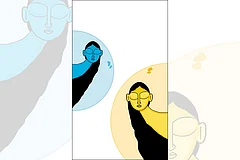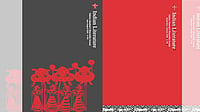The ingrained order of my adolescent years lay in religiously cropped short hair and ridiculously tailored dresses copied from fashion magazines. Any effort to radiate feminine beauty, with or without the aid of cosmetics, was firmly and promptly snuffed out. I gazed in wonder as the girls around me transformed into beautiful nymphs evoking flutters in the hearts of potential lovers. My world order consisted of prose, poetry, law, politics, and history. There was no pressure of looking good or speaking softly. Conversely it had a unique liberation. This was but an imperative consequence of being brought up by an overbearing parent who believed in gender neutrality. Being colourless became a way of life in a profession where words, law, logic, analytical thought, and articulation played an important role. If I was sidelined or not heard for not looking or staying beautiful I did not know it. If I knew it I chose to ignore it. The turning point in my life came with a pastel green Lucknowi chikan sari gifted by a younger female colleague in 2022. Draped in this dream I looked at the stranger in the mirror. She had kohl-dark eyes and her lips held the secret hint of a peach sky. Summer gleamed on her skin. I became that stranger at once. In the waning biological cycle, I hold on to a short-lived gift in the belief that I shall still have the unique liberation of being ‘unbeautiful’ to fall back upon.
(This appeared in the print as 'Unbeautiful')
MORE FROM THIS ISSUE
Smitha Sehgal is a poet and legal professional



























